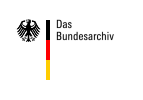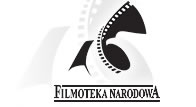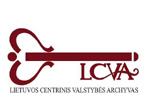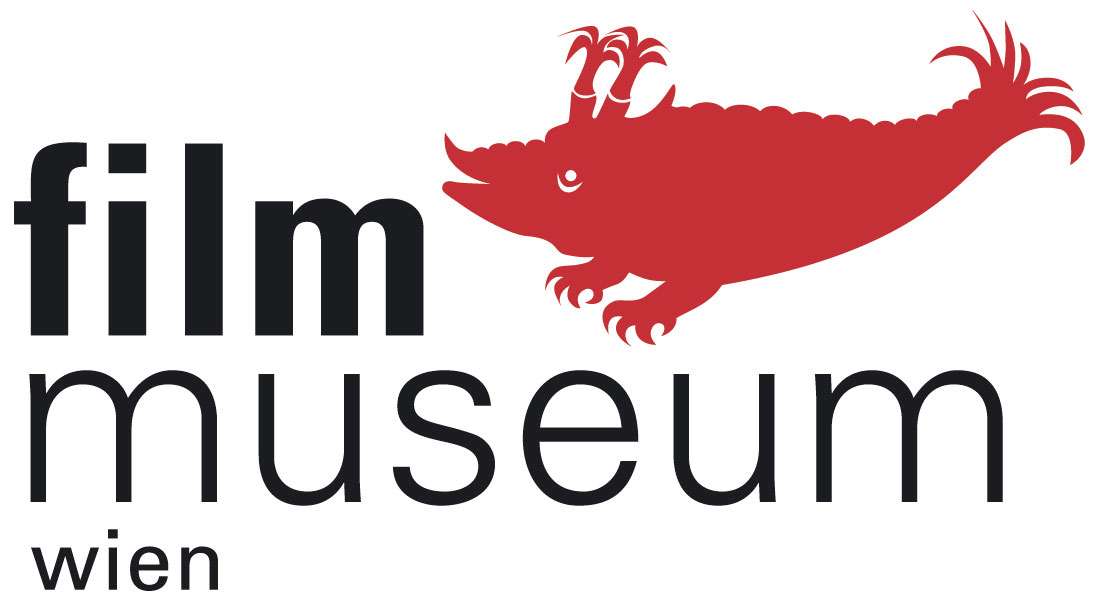![]() >> www.cnc-aff.fr The CNC French Film Archives were created in 1969 on the initiative of André Malraux, Minister of Culture, so that the state could take over the inventory and conservation of old films, including those on nitrate supports. Subsequently, the collections of old films steadily grew. In addition to voluntary deposits, donations, and acquisitions, legal deposits for films were implemented in 1977 and became the CNC’s responsibility in 1992.
>> www.cnc-aff.fr The CNC French Film Archives were created in 1969 on the initiative of André Malraux, Minister of Culture, so that the state could take over the inventory and conservation of old films, including those on nitrate supports. Subsequently, the collections of old films steadily grew. In addition to voluntary deposits, donations, and acquisitions, legal deposits for films were implemented in 1977 and became the CNC’s responsibility in 1992.
Deelnemende archieven
>> www.cncinema.abt.ro Arhiva Nationala de Filme (ANF) was established in 1957 as sole institution in Romania that collects, preserves and uses films for non-commercial purposes. Over the years it has been active in finding and identifying films, cataloguing as well as carrying out a series of studies on the history of Romanian cinema. It is a member of FIAF since 1960 and member of ACE since 1996.
 >>www.bundesarchiv.de It is the concern of every cultured nation to maintain, care for, make accessible to the public and continually supplement its stock of moving pictures. The Federal Republic of Germany primarily fulfils this responsibility through the Federal Archives. The Federal Film Archive in Berlin is one of the largest archives of its kind in the world.
>>www.bundesarchiv.de It is the concern of every cultured nation to maintain, care for, make accessible to the public and continually supplement its stock of moving pictures. The Federal Republic of Germany primarily fulfils this responsibility through the Federal Archives. The Federal Film Archive in Berlin is one of the largest archives of its kind in the world.
 >> www.cinecitta.com Cinecittà Luce in een publiek bedrijf operend voor het Ministerie van Cultuur in de Italiaanse filmindustrie. Het is het resultaat van een fusie tussen Cinecittà Holding en Istituto Luce, deze laatste was het eerste Staatsfilmbedrijf in Europa ontstaan in 1924.
>> www.cinecitta.com Cinecittà Luce in een publiek bedrijf operend voor het Ministerie van Cultuur in de Italiaanse filmindustrie. Het is het resultaat van een fusie tussen Cinecittà Holding en Istituto Luce, deze laatste was het eerste Staatsfilmbedrijf in Europa ontstaan in 1924.
![]() >>www.cinemateca.pt De Cinemateca Portuguesa-Museu do Cinema is het nationale filmmuseum van Portugal, een instituut toegewijd aan de conservering en vertoning van de Portugese en mondiale erfgoed van bewegend beeld. Opgericht in de jaren ‘50 van de vorige eeuw door de cinematografische pionier Manuel Félix Ribeiro en werd het in 1980 een autonoom instituut.
>>www.cinemateca.pt De Cinemateca Portuguesa-Museu do Cinema is het nationale filmmuseum van Portugal, een instituut toegewijd aan de conservering en vertoning van de Portugese en mondiale erfgoed van bewegend beeld. Opgericht in de jaren ‘50 van de vorige eeuw door de cinematografische pionier Manuel Félix Ribeiro en werd het in 1980 een autonoom instituut.
 >> www.cinematheque.fr De Cinémathèque Française is in 1936 opgericht door Henri Langlois, Georges Franju, Jean Mitry en Paul Auguste Harlé. Door de jaren heen heeft het steeds meer de focus gelegd op filmcultuur waardoor de substantiële collectie nu een van de ‘s werelds bekendste speelfilm archieven is. Ook is het de plek waar verschillende generaties cinema hebben ontdekt.
>> www.cinematheque.fr De Cinémathèque Française is in 1936 opgericht door Henri Langlois, Georges Franju, Jean Mitry en Paul Auguste Harlé. Door de jaren heen heeft het steeds meer de focus gelegd op filmcultuur waardoor de substantiële collectie nu een van de ‘s werelds bekendste speelfilm archieven is. Ook is het de plek waar verschillende generaties cinema hebben ontdekt.
>>www.cinematek.be The Cinémathèque Royale is one of the most important archives in Europe and in the world, due to its collections, its activities in exhibiting and distributing archival films across Europe, its role in the International associations of Archives (FIAF, ACE), its technical staff who has a history o
![]() >> www.cinetecadibologna.it Cineteca di Bologna is een regionaal instituut met als primaire missie het bewaren en verspreiden van film erfgoed in alle mogelijke vormen en uitingen denkbaar.
>> www.cinetecadibologna.it Cineteca di Bologna is een regionaal instituut met als primaire missie het bewaren en verspreiden van film erfgoed in alle mogelijke vormen en uitingen denkbaar.
 >>www.fondazionecsc.it The Cineteca Nazionale (National Film Archive), part of Centro Sperimentale di Cinematografia, one of the most important film archives in Europe, was instituted by State law in 1949 in order to preserve and propagate Italy's cinematographic heritage. The original nucleus of the collection was put together with the establishment of the Centro Sperimentale di Cinematografia in the 1930s, and it was used as a teaching aid.
>>www.fondazionecsc.it The Cineteca Nazionale (National Film Archive), part of Centro Sperimentale di Cinematografia, one of the most important film archives in Europe, was instituted by State law in 1949 in order to preserve and propagate Italy's cinematographic heritage. The original nucleus of the collection was put together with the establishment of the Centro Sperimentale di Cinematografia in the 1930s, and it was used as a teaching aid.
 >> www.dfi.dk TDet Danske Filminstitut, het Deense filminstituut (DFI) is het nationale instituut verantwoordelijk voor ondersteunen van film- en cinemacultuur en het behoud daarvan. DFI’s werkzaamheden varieert van deelnemen aan de ontwikkeling en productie van speelfilms, korte films en documentaires, distributie en marketing tot het managen van het nationale filmarchief en cinémathèque.
>> www.dfi.dk TDet Danske Filminstitut, het Deense filminstituut (DFI) is het nationale instituut verantwoordelijk voor ondersteunen van film- en cinemacultuur en het behoud daarvan. DFI’s werkzaamheden varieert van deelnemen aan de ontwikkeling en productie van speelfilms, korte films en documentaires, distributie en marketing tot het managen van het nationale filmarchief en cinémathèque.
![]() >> www.deutsche-kinemathek.de The task of the Deutsche Kinemathek – Museum für Film und Fernsehen is to collect, preserve, develop, present and mediate our audiovisual heritage. Since 2006, it remains the sole institution in Europe presenting both media together through its permanent exhibitions on film and television.
>> www.deutsche-kinemathek.de The task of the Deutsche Kinemathek – Museum für Film und Fernsehen is to collect, preserve, develop, present and mediate our audiovisual heritage. Since 2006, it remains the sole institution in Europe presenting both media together through its permanent exhibitions on film and television.
![]() >> www.deutsches-filminstitut.de Deutsches Filminstitut (DIF) is opgericht in 1949 en is niet alleen het oudste cineamatografische instituut in Duitsland maar ook de grootste.
>> www.deutsches-filminstitut.de Deutsches Filminstitut (DIF) is opgericht in 1949 en is niet alleen het oudste cineamatografische instituut in Duitsland maar ook de grootste.
 >> www.filmi.arhiiv.ee The main task of the Estonian Film Archives, according to the Act of Archives, is to collect, preserve and provide access to the national film, photo and audio heritage. Collecting and preserving film heritage started in 1935. After the II WW governing the archival matters was directed to Moscow. Access to most of the pre-war films was restricted (the first film of Estonian origin was released in 1912).
>> www.filmi.arhiiv.ee The main task of the Estonian Film Archives, according to the Act of Archives, is to collect, preserve and provide access to the national film, photo and audio heritage. Collecting and preserving film heritage started in 1935. After the II WW governing the archival matters was directed to Moscow. Access to most of the pre-war films was restricted (the first film of Estonian origin was released in 1912).
 >> www.eyefilm.nl EYE Film Instituut Nederland is een overkoepelend sectorinstituut voor de Nederlandse filmwereld dat zorg draagt voor de filmcultuur.
>> www.eyefilm.nl EYE Film Instituut Nederland is een overkoepelend sectorinstituut voor de Nederlandse filmwereld dat zorg draagt voor de filmcultuur.
 >> http://filmarchiv.at Filmarchiv Austria is de centrale locatie voor filmcollecties en documentatie in Oostenrijk en heeft daarmee het culturele audiovisuele erfgoed van Oostenrijk. De afwisselende collecties in het archief beslaan een periode van meer dan honderd jaar, van de 19e eeuw tot en met het heden. Het Filmarchiv Austria heeft meer dan 100.000 film prints, 2.000.000 foto's en film stills, rond de 25.000 filmprogramma’s en ontelbaar veel andere items zoals posters, boeken en documenten.
>> http://filmarchiv.at Filmarchiv Austria is de centrale locatie voor filmcollecties en documentatie in Oostenrijk en heeft daarmee het culturele audiovisuele erfgoed van Oostenrijk. De afwisselende collecties in het archief beslaan een periode van meer dan honderd jaar, van de 19e eeuw tot en met het heden. Het Filmarchiv Austria heeft meer dan 100.000 film prints, 2.000.000 foto's en film stills, rond de 25.000 filmprogramma’s en ontelbaar veel andere items zoals posters, boeken en documenten.
![]() >> www.mcu.es Filmoteca Española is the Spanish national film archive under the direction of the Instituto de la Cinematografía y de las Artes Visuales (ICAA) of the Ministry of Education, Culture and Sports. The aims and activities of the Filmoteca Española are:
>> www.mcu.es Filmoteca Española is the Spanish national film archive under the direction of the Instituto de la Cinematografía y de las Artes Visuales (ICAA) of the Ministry of Education, Culture and Sports. The aims and activities of the Filmoteca Española are:

 >> www.fn.org.pl The National Film Archive in Poland was created in 1955. From the beginning it belonged to The International Federation of Film Archives (FIAF), an association of the majority of film archives in the World. The collection of film reels and archival materials such as posters, photos, scripts assembled in Filmoteka Narodowa is one of the largest in Europe. With the help of few generation of archivists Filmoteka Narodowa retrieve 75% of Polish feature films from 1914 to 1939 rescued after the II World War.
>> www.fn.org.pl The National Film Archive in Poland was created in 1955. From the beginning it belonged to The International Federation of Film Archives (FIAF), an association of the majority of film archives in the World. The collection of film reels and archival materials such as posters, photos, scripts assembled in Filmoteka Narodowa is one of the largest in Europe. With the help of few generation of archivists Filmoteka Narodowa retrieve 75% of Polish feature films from 1914 to 1939 rescued after the II World War.
![]() >> www.cinetecamilano.it The Cineteca Italiana was officially founded in Milan in 1947. Its first nucleus was a small stock of cinema masterpieces rescued from destruction in the Thirties and adventurously preserved until after World War II by a group of young cinéphiles and intellectuals among whom there were the future directors Luigi Comencini and Alberto Lattuada.
>> www.cinetecamilano.it The Cineteca Italiana was officially founded in Milan in 1947. Its first nucleus was a small stock of cinema masterpieces rescued from destruction in the Thirties and adventurously preserved until after World War II by a group of young cinéphiles and intellectuals among whom there were the future directors Luigi Comencini and Alberto Lattuada.
 The Imperial War Museum was founded in 1917 to record the story of the Great War and the contributions made to it by the peoples of the Empire. An Act of Parliament formally established the Museum and its governing body, the Board of Trustees, in 1920, when the Museum opened in the Crystal Palace. From 1924 to 1935 the Museum was housed in two small galleries adjoining the Imperial Institute. In 1936 it was reopened in the central portion of the former Bethlem Royal Hospital in Lambeth Road, Southwark where it remains to this day.
The Imperial War Museum was founded in 1917 to record the story of the Great War and the contributions made to it by the peoples of the Empire. An Act of Parliament formally established the Museum and its governing body, the Board of Trustees, in 1920, when the Museum opened in the Crystal Palace. From 1924 to 1935 the Museum was housed in two small galleries adjoining the Imperial Institute. In 1936 it was reopened in the central portion of the former Bethlem Royal Hospital in Lambeth Road, Southwark where it remains to this day.
 >> www.kinoteka.org.rs Jugoslovenska Kinoteka (official title since 1952) or National Film Archive of Republic Serbia is the national film library of the Republic Serbia, founded in 1949. It consists of four organizational units: Film archive, Film museum – the cinema, The Library and General Services. Jugoslovenska Kinoteka is one of the founders and a permanent member of FIAF (International Federation of Film Archives). It takes part in the activities of FIAF since 1951. The heart of the institution is the Film Archive.
>> www.kinoteka.org.rs Jugoslovenska Kinoteka (official title since 1952) or National Film Archive of Republic Serbia is the national film library of the Republic Serbia, founded in 1949. It consists of four organizational units: Film archive, Film museum – the cinema, The Library and General Services. Jugoslovenska Kinoteka is one of the founders and a permanent member of FIAF (International Federation of Film Archives). It takes part in the activities of FIAF since 1951. The heart of the institution is the Film Archive.
![]() >> www.kava.fi Het Finse Film Archief is opgericht in 1957 als een privaat genootschap. Een jaar later werd het lid van het Fédération Internationale des Archives du Film (FIAF). In 1979 werd het archief een publiek orgaan onderdeel van het Ministerie van Onderwijs. Op 1 januari 2008 werden de functies van het archief uitgebreid met archivering van radio- en televisiemateriaal. Tegelijkertijd kreeg het een nieuwe naam: Nationaal Audiovisueel Archief.
>> www.kava.fi Het Finse Film Archief is opgericht in 1957 als een privaat genootschap. Een jaar later werd het lid van het Fédération Internationale des Archives du Film (FIAF). In 1979 werd het archief een publiek orgaan onderdeel van het Ministerie van Onderwijs. Op 1 januari 2008 werden de functies van het archief uitgebreid met archivering van radio- en televisiemateriaal. Tegelijkertijd kreeg het een nieuwe naam: Nationaal Audiovisueel Archief.
 >> www.cinetecadelfriuli.org The Cineteca del Friuli was founded in Gemona in 1977, soon after the city was destroyed by the earthquake of May 1976, and is now one of the five major Italian film libraries. It joined the International Federation of Film Archives (FIAF) in 1989. The film archive began with a collection of films of historical interest and it has grown considerably over the years: it currently includes some 10,000 films in 35mm and 16mm, 50% fiction and 50% newsreels and documentaries. Small formats such as 17.5 mm, 9.5 mm, the 8mm and Super8 are also represented in about 500 copies.
>> www.cinetecadelfriuli.org The Cineteca del Friuli was founded in Gemona in 1977, soon after the city was destroyed by the earthquake of May 1976, and is now one of the five major Italian film libraries. It joined the International Federation of Film Archives (FIAF) in 1989. The film archive began with a collection of films of historical interest and it has grown considerably over the years: it currently includes some 10,000 films in 35mm and 16mm, 50% fiction and 50% newsreels and documentaries. Small formats such as 17.5 mm, 9.5 mm, the 8mm and Super8 are also represented in about 500 copies.
>> www.landesfilmsammlung-bw.de The Landesfilmsammlung Baden-Wuerttemberg (LFS) is the central film archive of the federal state of Baden-Wuerttemberg in Germany. It was established in 1998. The LFS collects films from and about Baden-Wuerttemberg. In addition it archives copies of films funded by the MFG Film Funding Organization. More than 8.500 films have been collected so far from communal, church, state and company archives as well as private collections, the major sources of the constantly growing collection. The oldest film reel dates back to 1904, the latest video file was recorded only last year.
 >> www.lichtspiel.ch In 2000 nam de Lichtspiel associatie de verantwoordelijkheid over de bedreigde cinematografische collectie van de cinema technicus Walter A. Rischard uit Bern. Vanaf dat moment hebben de leden van het comité deze collectie niet alleen gerestaureerd en toegankelijk gemaakt maar ook een regionale cinema ontwikkeld wat een verbinding werd voor alle film en cinema aangelegenheden.
>> www.lichtspiel.ch In 2000 nam de Lichtspiel associatie de verantwoordelijkheid over de bedreigde cinematografische collectie van de cinema technicus Walter A. Rischard uit Bern. Vanaf dat moment hebben de leden van het comité deze collectie niet alleen gerestaureerd en toegankelijk gemaakt maar ook een regionale cinema ontwikkeld wat een verbinding werd voor alle film en cinema aangelegenheden.
 >> www.archyvai.lt Het Lietuvos Centrinis Valstybės Archyvas (Litouws Centrale Staatsarchief) is het grootste archief in het Staatarchiefsysteem. Het hoofdtaak van zijn activiteiten is verzamelen en beschermen van papieren en audiovisuele documenten voor toekomstige generaties en het bieden van blijvende publieke toegang tot de collecties.
>> www.archyvai.lt Het Lietuvos Centrinis Valstybės Archyvas (Litouws Centrale Staatsarchief) is het grootste archief in het Staatarchiefsysteem. Het hoofdtaak van zijn activiteiten is verzamelen en beschermen van papieren en audiovisuele documenten voor toekomstige generaties en het bieden van blijvende publieke toegang tot de collecties.
 >> http://mandarchiv.hu/ Het Hongaarse Instituut voor Film Wetenschappen was opgericht in 1957. Sinds 2000 heet het Magyar Nemzeti Filmarchívum (Hongaars Nationaal Filmarchief) met de status van “nationale publieke collectie”. De taken van het archief zijn: collectie, acquisitie, behoud, restauratie, vertonen en professionele opslag van de Hongaarse speelfilms, documentaires, nieuwsoverzichten, animatie, populair wetenschappelijke films en klassiekers van wereldcinema.
>> http://mandarchiv.hu/ Het Hongaarse Instituut voor Film Wetenschappen was opgericht in 1957. Sinds 2000 heet het Magyar Nemzeti Filmarchívum (Hongaars Nationaal Filmarchief) met de status van “nationale publieke collectie”. De taken van het archief zijn: collectie, acquisitie, behoud, restauratie, vertonen en professionele opslag van de Hongaarse speelfilms, documentaires, nieuwsoverzichten, animatie, populair wetenschappelijke films en klassiekers van wereldcinema.
 >>www.museocinema.it Unique in Italy and among the most important worldwide, the Museo Nazionale del Cinema (or National Cinema Museum) is hosted within the Mole Antonelliana in Turin, the symbol of the city. Inaugurated in July 2000, it has seen over 6,500,000 visitors (568,000 only in 2012) in 13 years, becoming one of the most visited museums in Turin and in Piedmont and garnering much acclaim at an international level; a remarkable goal for a very particular museum, which proposes to charm its visitors by drawing them into the enchanting world of the Seventh Art.
>>www.museocinema.it Unique in Italy and among the most important worldwide, the Museo Nazionale del Cinema (or National Cinema Museum) is hosted within the Mole Antonelliana in Turin, the symbol of the city. Inaugurated in July 2000, it has seen over 6,500,000 visitors (568,000 only in 2012) in 13 years, becoming one of the most visited museums in Turin and in Piedmont and garnering much acclaim at an international level; a remarkable goal for a very particular museum, which proposes to charm its visitors by drawing them into the enchanting world of the Seventh Art.
 >> www.nfa.cz Het Národní Filmový Archiv (NFA) is in 1943 opgericht door het Tsjechisch-Moravisch Film Centrum om de filmmaterialen te beschermen tegen oorlogsoperaties. In 1946 werd het lid van het Fédération Internationale des Archives du Film (FIAF). Na onderdeel geweest te zijn van het Tsjechoslowaaks filminstituut is het archief in 1992 door de Minister van Cultuur veranderd in het onafhankelijk Národní Filmový Archiv.
>> www.nfa.cz Het Národní Filmový Archiv (NFA) is in 1943 opgericht door het Tsjechisch-Moravisch Film Centrum om de filmmaterialen te beschermen tegen oorlogsoperaties. In 1946 werd het lid van het Fédération Internationale des Archives du Film (FIAF). Na onderdeel geweest te zijn van het Tsjechoslowaaks filminstituut is het archief in 1992 door de Minister van Cultuur veranderd in het onafhankelijk Národní Filmový Archiv.
![]() >> www.nb.no De Nasjonalbiblioteket (Nationale Bibliotheek van Noorwegen) is verantwoordelijk voor het verzamelen, behouden en restaureren van het Noorse film erfgoed om het beschikbaar te maken voor onderzoek en documentatie. De collectie bevat meer dan 21.000 titels van verschillende formaten, genres en oorsprong.
>> www.nb.no De Nasjonalbiblioteket (Nationale Bibliotheek van Noorwegen) is verantwoordelijk voor het verzamelen, behouden en restaureren van het Noorse film erfgoed om het beschikbaar te maken voor onderzoek en documentatie. De collectie bevat meer dan 21.000 titels van verschillende formaten, genres en oorsprong.
 >> www.filmmuseum.at Österreichisches Filmmuseum (Austrian Film Museum / OeFM) is a specific exhibition space (film as a time-based event, the experience of a performative act), a collection site and archive (film as an artefact, as local and global memory), a research and study centre, as well as a place for public debate and reflection (film as a nodal point of discourse on culture and society).
>> www.filmmuseum.at Österreichisches Filmmuseum (Austrian Film Museum / OeFM) is a specific exhibition space (film as a time-based event, the experience of a performative act), a collection site and archive (film as an artefact, as local and global memory), a research and study centre, as well as a place for public debate and reflection (film as a nodal point of discourse on culture and society).
![]() >> ssa.nls.uk
>> ssa.nls.uk
The Scottish Screen Archive is a film and video collection of over 100 years of Scotland's history. The archive reflects 20th-century Scottish social, cultural and industrial history, the lives of ordinary Scots across the generations and the achievements of Scottish film-makers in the craft of film production. It joined the National Library of Scotland in 2007.
 >> www.sfi.se The Swedish Film Institute works to promote film across the board – from idea to finished product, during launch in Sweden and around the world, and by preserving films for posterity in our archives. It was founded in 1963 by the Swedish state and the various professional bodies of the film industry.
>> www.sfi.se The Swedish Film Institute works to promote film across the board – from idea to finished product, during launch in Sweden and around the world, and by preserving films for posterity in our archives. It was founded in 1963 by the Swedish state and the various professional bodies of the film industry.
.jpg) >> www.tainiothiki.gr De Tainiothiki tis Ellados (Het Griekse Film Archief) was in 1950 opgezet door de Associatie van Film Critici in Athene. In 1963 werd de het fonds met de naam “Film Archives of Greece – Greek Film Archive” officieel vastgesteld door Koninklijk Besluit (105/1963). Sinds 1983 is het Tainiothiki tis Ellados lid van Fédération Internationale des Archives du Film (FIAF). Het Tainiothiki tis Ellados is geregistreerd als een cultureel non-profit fonds en ontvangt jaarlijks subsidie van het Griekse Ministerie van Cultuur.
>> www.tainiothiki.gr De Tainiothiki tis Ellados (Het Griekse Film Archief) was in 1950 opgezet door de Associatie van Film Critici in Athene. In 1963 werd de het fonds met de naam “Film Archives of Greece – Greek Film Archive” officieel vastgesteld door Koninklijk Besluit (105/1963). Sinds 1983 is het Tainiothiki tis Ellados lid van Fédération Internationale des Archives du Film (FIAF). Het Tainiothiki tis Ellados is geregistreerd als een cultureel non-profit fonds en ontvangt jaarlijks subsidie van het Griekse Ministerie van Cultuur.
Het archief heeft de grootste en belangrijkste filmcollectie van Griekenland met 10.000 buitenlandse en meer dan 2.500 Griekse titels, samen met een collectie van pre- cineastische apparaten, toverlantaarns alsmede verschillende typen camera’s en filmgerelateerde materialen.
 Deutsch
Deutsch English
English Čeština
Čeština Dansk
Dansk Français
Français Italiano
Italiano Lietuvių
Lietuvių Magyar
Magyar Nederlands
Nederlands Norsk
Norsk Português
Português Suomi
Suomi